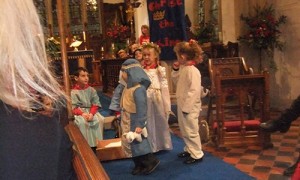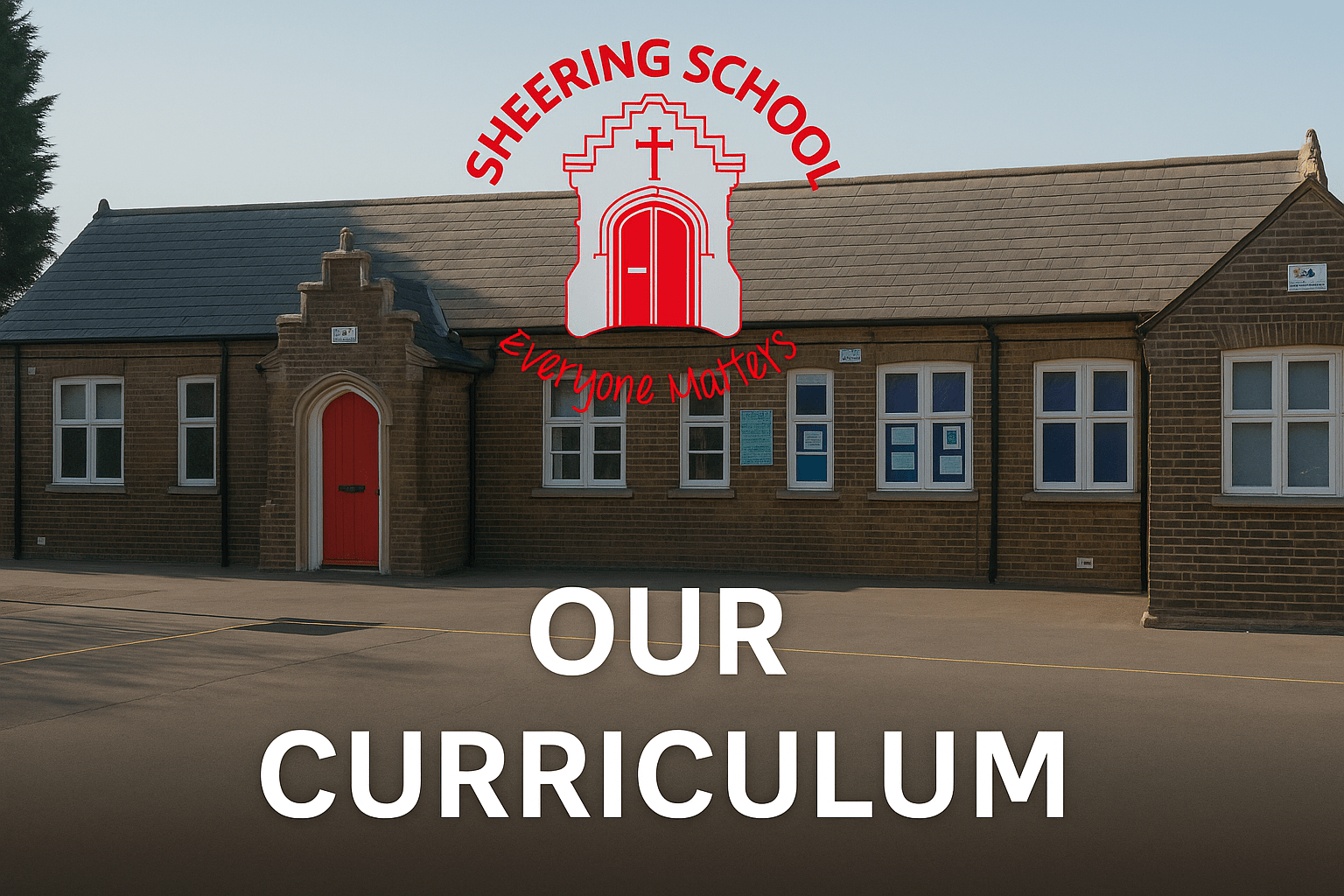
Curriculum Statement
At Sheering C of E Primary School, we provide a curriculum which is vibrant, rich and challenging that goes beyond the experiences of the classroom to nurture each child’s passion for learning. It is designed to meet the diverse needs of all our learners while fostering their individual interests and enhancing their overall learning experience.
Alongside our AWESOME (Christian) and British values, our empowering curriculum cultivates resilient, independent, confident and successful learners, who have high aspirations and are equipped to make lasting, positive contributions to their community and the wider society at large.
Our Curriculum:
- Ensures that enjoyment, academic success, creativity, problem solving, resilience, physical development, well-being and mental health are integral to supporting the whole child’s development, fostering positive attitudes to learning.
- Embraces diversity and draws on the skills, knowledge and cultural richness of the community while supporting the children’s spiritual, moral, social and cultural development, ensuring that children are well prepared for life in modern Britain.
- Recognises the importance of securing deeper levels of knowledge and understanding and memory to underpin pupils’ thinking, promoting learning at greater depth.
- Fulfils all the requirements of the National Curriculum and the Locally Agreed Syllabus for Religious Education.
October 2024
Current Curriculum Schedule for Year Groups
Early Years Foundation Stage Curriculum Download
Year 1 & 2 Curriculum Cycle A – Updated curriculum coming soon!
Year 1 & 2 Curriculum Cycle B Download
Year 3 & 4 Curriculum Cycle A – Updated curriculum coming soon!
Year 3 & 4 Curriculum Cycle B Download
Year 5 & 6 Curriculum Cycle A – Updated curriculum coming soon!
Year 5 & 6 Curriculum Cycle B DownloadEnglish
At Sheering School we teach phonics and reading using a systematic synthetic programme called Little Wandle.
Please visit https://www.littlewandlelettersandsounds.org.uk/resources/for-parents/ for more information. Here you will find resources which will help you to support your child with saying their sounds and writing their letters. There are also some useful videos so that you can see how they are taught at school and feel confident about supporting their reading at home.
Phonics and Early Reading PolicyDownload
Progression in ReadingDownload
Progression in Spoken LanguageDownload
Progression in WritingDownload
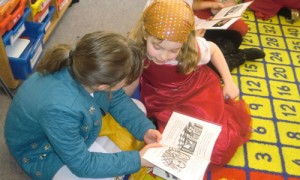
Mathematics
Maths Curriculum Reception Download
Maths Curriculum Year 1 & 2Download
Maths Curriculum Year 3 & 4Download
Maths Curriculum Year 5 & 6Download
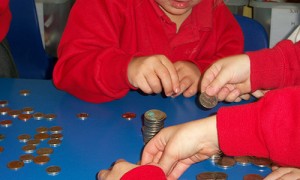
Science
-
Observing over time
-
Pattern seeking
-
Identifying, classifying and grouping
-
Comparative and fair testing
-
Research using secondary sources
-
Problem solving
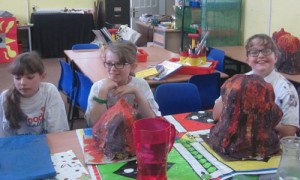
Music
At Sheering School we follow the Essex Music Service Charanga scheme of work. Musical appreciation takes place daily during mindfulness and ‘Time to Connect’ sessions. In addition to this, music is played when the children enter and exit the hall for Collective Worship each day. We hold a weekly whole-school singing assembly which is held on Tuesdays and have a whole school Music display board.
We have 2 main school productions each year in which all children from every class takes part. The EYFS and KS1 children perform in the Christmas Nativity Production and KS2 perform in the End of Year Production. Our school also performs at our local church during various times throughout the year e.g. Harvest Festival and the Mother’s Day service.
Brittaine’s Got Talent is an annual music extravaganza in which the whole school is invited to audition in groups, classes, or as soloists to share their talents with us.
We also offer a wide range of creative clubs including choir and peripatetic tuition which supports and extends our curriculum.
Progression in MusicDownload
Music Development PlanDownload
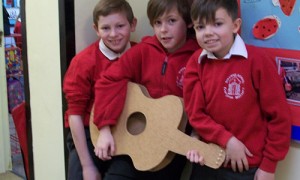
Computing
Progression in ComputingDownload
Physical Education (PE)
Progression in PEDownload
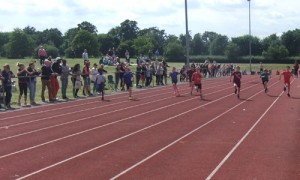
Design & Technology
Progression in Design & TechnologyDownload
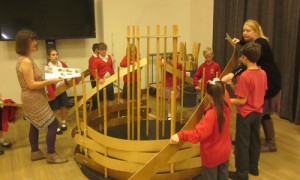
Art & Design
At Sheering School we are artists, designers and chefs. Every month a child’s masterpiece is chosen to be displayed in our gallery. We proudly showcase the Artist of the Month for each class and award the recipient with a special certificate in Team Assembly.
The whole school takes part in virtual workshops throughout the year led by the Royal Ballet and Opera House.
We offer a wide range of creative clubs which support and extend our curriculum.
Progression in Art & DesignDownload
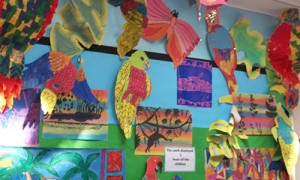
History
At Sheering CE Primary School, our History curriculum is designed to inspire a lifelong interest in the past and to deepen our children’s understanding of their own identities and the wider world. We foster a sense of curiosity that motivates pupils to explore historical events, significant individuals from a diverse range of backgrounds, and important places throughout history.
Through engaging and challenging lessons, we equip our children with key historical skills, encouraging them to develop their abilities in enquiry, analysis, evaluation, and forming reasoned arguments. Our approach ensures that every child has the opportunity to appreciate the richness of history and the lessons it offers for the future.
Progression in HistoryDownload
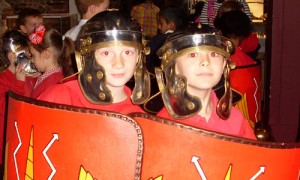
Modern Foreign Languages
Progression in SpanishDownload
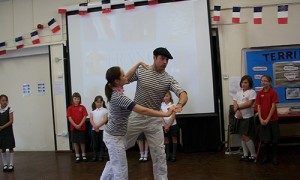
Geography
Progression in GeographyDownload
Religious Education (RE)
Progression in REDownload
PHSE & RSE
Progression in PHSE & RSEDownload
